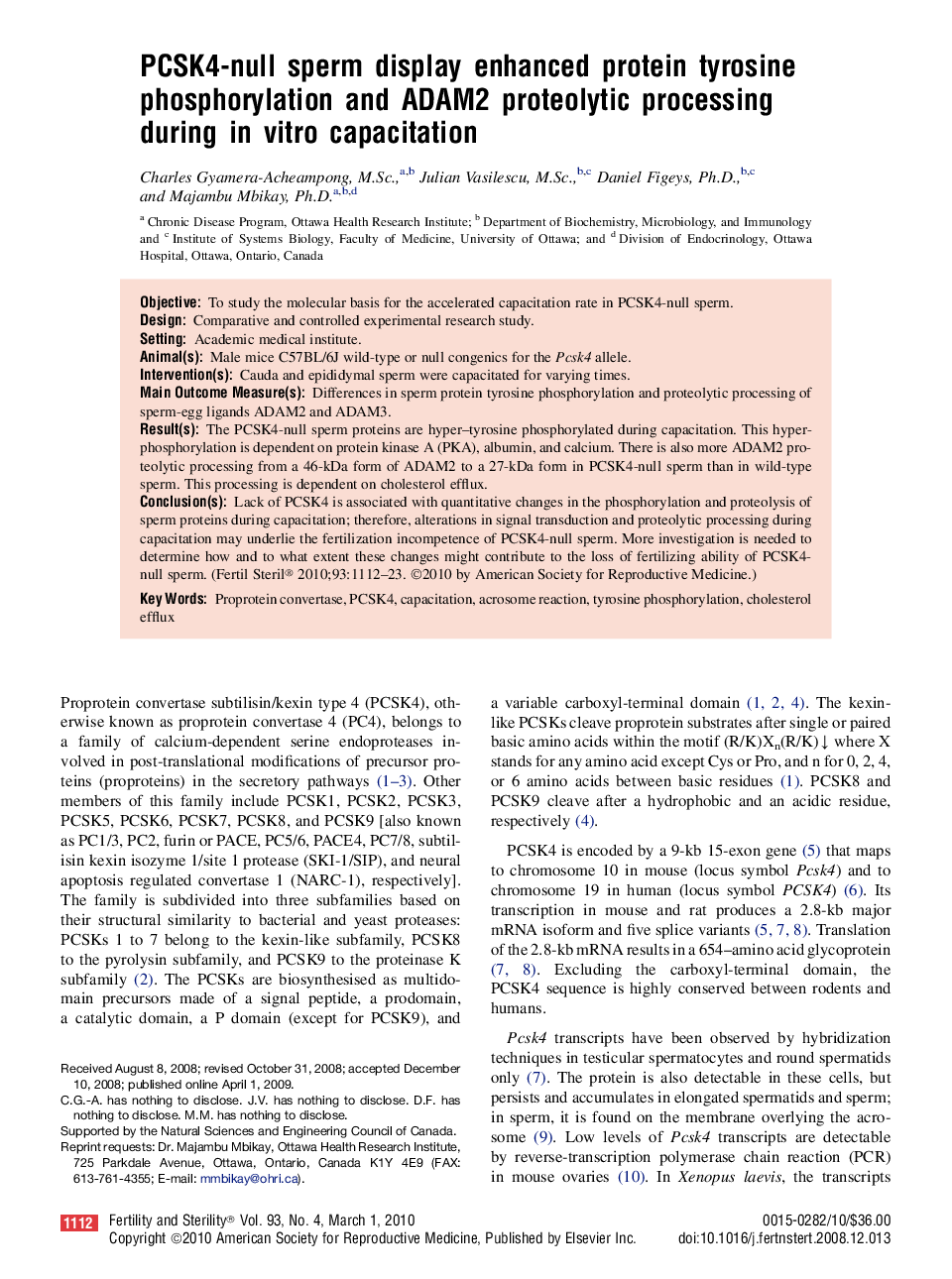| Article ID | Journal | Published Year | Pages | File Type |
|---|---|---|---|---|
| 3933523 | Fertility and Sterility | 2010 | 12 Pages |
ObjectiveTo study the molecular basis for the accelerated capacitation rate in PCSK4-null sperm.DesignComparative and controlled experimental research study.SettingAcademic medical institute.Animal(s)Male mice C57BL/6J wild-type or null congenics for the Pcsk4 allele.Intervention(s)Cauda and epididymal sperm were capacitated for varying times.Main Outcome Measure(s)Differences in sperm protein tyrosine phosphorylation and proteolytic processing of sperm-egg ligands ADAM2 and ADAM3.Result(s)The PCSK4-null sperm proteins are hyper–tyrosine phosphorylated during capacitation. This hyperphosphorylation is dependent on protein kinase A (PKA), albumin, and calcium. There is also more ADAM2 proteolytic processing from a 46-kDa form of ADAM2 to a 27-kDa form in PCSK4-null sperm than in wild-type sperm. This processing is dependent on cholesterol efflux.Conclusion(s)Lack of PCSK4 is associated with quantitative changes in the phosphorylation and proteolysis of sperm proteins during capacitation; therefore, alterations in signal transduction and proteolytic processing during capacitation may underlie the fertilization incompetence of PCSK4-null sperm. More investigation is needed to determine how and to what extent these changes might contribute to the loss of fertilizing ability of PCSK4-null sperm.
